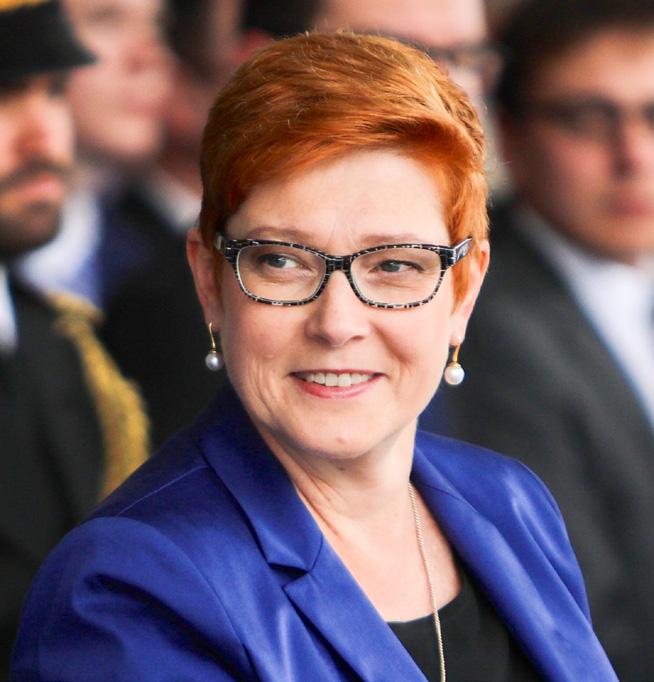
2 minute read
Senator the Hon Marise Payne
MINISTER’S FOREWORD
by Senator the Hon Marise Payne
Minister for Foreign Affairs and Minister for Women
I am delighted to support the 25th Anniversary Edition of the NAWIC Journal. Now more than ever we need to encourage and support women to pursue employment and careers in traditionally male-dominated sectors like construction. The COVID-19 pandemic has resulted in workforce and skills shortages in Australia, including in the construction industry. Australia’s recovery from the pandemic will require a stronger, more resilient and incomegenerating economy which is inclusive of all Australians. As part of the JobMaker Plan, the Government is providing targeted support to increasing women’s workforce participation, and women are indicating that they are willing and available to work more. I commend NAWIC on its mission to achieve 25 per cent female participation across the construction industry by 2025. The industry has made good progress to attract women by offering more flexible working arrangements and appointing more women into leadership positions. However, the industry remains male-dominated with women making up only 13.8 per cent of the workforce. The gender pay gap for the industry was 16.4 per cent in 2020, higher than the national average of 13.4 per cent. More work needs to be done and the Government is committed to complementing the efforts of the construction industry to attract more women into pursuing employment and careers in the sector. Since 2016-17, the Government has invested over $2.5 million towards supporting women in the building and construction industry, through a key partnership with Master Builders Australia. In February of this year, I launched an expansion of the Women Building Australia program with an additional $1.6 million investment under the Government’s 2020 Women’s Economic Security Statement. The expansion will build on the program’s success to date by supporting more women to pursue a career in building and construction and providing mentoring to develop women into management and leadership roles. The expanded program also includes a new support service for women experiencing discrimination or harassment. In May 2021, I also announced 60 organisations to receive government grant funding under the Women’s Leadership and Development Program. The grants will support almost 40,000 women by increasing choices in work and breaking down employment barriers. Among the projects is The Skill Engineer’s Girls of Steel project which will support women to enter into an apprenticeship in a non-traditional trade. The progress that has been achieved is an excellent collaborative effort by industry associations such as NAWIC, business, government and individuals. I commend the women in this journal for sharing their stories and congratulate NAWIC for its achievements over the last 25 years. I look forward to seeing more women working in the construction industry including in management and leadership positions.









